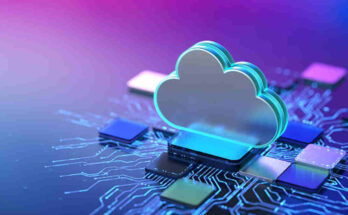Imagine you wake up in a small village 150 years ago. If you feel any illness, you are left with only a few options. One, you will look for home remedies, or wait for it to improve.
The third option was to walk miles to visit a health specialist. There were no apps that could keep track of your health condition, pulse rate, or how many calories you burned, or even what your health condition was.
There was nothing like that. You didn’t have the facility to consult a doctor on the video call.
Now you can wake up, my friend, you’re in 2025, where the development of technology has positively affected our wellness.
Let’s know in detail how it revolutionised the health sector
1. Easy Access to Health Information
Earlier on, people tended to visit hospitals for every small detail, or they visited libraries for information. But now, with one click, you can know about anything with the help of the internet and smartphones.
Now people are becoming very aware, and also many good sites are available on search engines, which give you a good amount of knowledge and relevant information on how you can diagnose the disease, followed by how to cure it.
2. Fitness Trackers and Wearable Devices
Companies like Amaze Fit, Fitbit, Apple Watch, and others give enough knowledge about your pulse rate, heartbeat rate, calories burned, and stress level. It even tracks how many steps you’ve walked.
So it not only tracks but also motivates you to walk more and complete the daily challenge if you are on the heavier side.
In 2021, I was diagnosed with COVID-19. During that period, breathing levels were affected, so health professionals advised people to check their pulse rate.
So, I checked my pulse rate on the smart watch, and it was accurate because I tallied on the pulse rate metre too.
Wearables, fitness apps, and AI tools improving user experience are reshaping how we interact with health data, while integration tools that enhance healthcare data workflows streamline information from multiple devices.
3. Telemedicine and Virtual Consultations
Earlier, when people felt unwell, they used to travel to the hospital and wait in long queues. Sometimes they didn’t even get their number on the same day because of a long rush.
It becomes worse when people take special paid leave and still end up waiting for their turn.
However, now things have changed drastically; now if you are feeling any health issues, then you don’t need to go physically. Instead, you can do a telecall and consult the doctor over there. You can also showcase your problem through a video call and get advice from the doctor.
4. Online Pharmacies
Purchasing medicines is no longer a difficult task, as it has become easier than ordering food online. With some online pharmacy apps and websites accessible for download.
Now you can upload your prescriptions there, and the medicines will be delivered to your home. I must say it is very beneficial for elderly people who cannot move. The best part is that some medical shops are not available in some areas, so the delivery of medicine is a great help.
You can also get more exciting discounts, which are quite cheaper than most of the medical shops.
You May Also Like: What is One Way That Technology Can Improve the Distribution of Goods?
5. Mental Health Apps
Mental health is as important as physical health. However, people overlooked this.
To address this as a major problem, many apps have been introduced, such as Headspace, Calm, and BetterHelp, providing meditation sessions, mood logging, counselling discussions, and music calming features.
Nowadays, people are very stressed about their job, family, career, and many other things. So here the app gives challenges to users to meditate daily, smile while looking at the mirror for 5 minutes continuously, and many more.
This type of exercise reduces the stress level and helps you to distract from negative energy.
The best part about, it is way cheaper as compared to face-to-face therapy and accessible at all times.
6. Advanced Diagnostic Tools
Technology has enhanced diagnosis in one way that it has made it easier, accurate, and the process of diagnosing does not involve causing the patient much pain.
Some facilities, such as MRI, CT, EMGs, and blood tests, among others, can diagnose diseases at an early stage, which with the naked eye wouldn’t be possible.
This is very important because early detection helps doctors treat the diseases early.
The chance of getting cures has also increased.
With the help of AI technology, it detects dangerous patterns in the body, making it easier to detect diabetes, blood pressure, brain tumors, and cancer.
Earlier, it wasn’t easy, and with that, so many people got in trouble after knowing the disease in the later part, but now, even if you have some disease in your body, it can be cured with the help of technology.
7. AI-Powered Health Assistants
All AI health assistance, like chatbots available on the website and apps, are always ready to answer your questions to be solved in a minute. Even if you’re asking a question at midnight, you will receive the solution.
This AI helps you in attaining enough knowledge for your disease, and you will get ample time to cure yourself or consult with the Doctor. Moreover, it saves time and prevents you from unnecessary visits to the hospital.
AI not only helps you, but it also helps Doctors by assisting in surgeries and detecting diseases through machines and tools that the human eye won’t be able to find.
8. Remote Patient Monitoring
People with the disease type 2 diabetes or hypertension must undergo regular checks
With the help of technology, you can send your daily or weekly reports to the hospitals.
Because you won’t believe, now blood pressure monitors, glucose metres, and heart metres can be connected to apps and hospitals.
With the help of the assistant, the doctor can better understand the patient’s health, and based on the doctor can make an informed decision whether the patient’s health is improving or requires some changes in the medicine.
This method also helps doctors to monitor the progress of the health of patients without having to make frequent visits to the hospital.
9. Virtual Fitness Classes
Health requires people to engage in exercises, and nowadays, technology has helped in the advancement of fitness.
If you are a 9-5 person or a housewife, you don’t have time to go to the gym, so what you can do is join the virtual fitness classes on Zoom, YouTube, or even with apps.
This is not only beneficial for you but also gives good earning opportunities to fitness and yoga trainers to train individuals. The best part is that they have to teach from their home only, so they don’t have to invest in space and interiors.
And with the help of the apps, you just have to mention your fitness goals, and they will provide you with a customised diet and exercise plan.
10. Personalised Health Plans
Advances in Information technology are making provision of health plans that are individualised for each person.
From your age, weight, lifestyle, and aims, apps and fitness platforms suggest individual plans or a diet table, exercise plan, and health rules.
I must say personalised plans are more effective because they make plans according to the objective, age, and preference for eating( veg and non-veg diet).
Some of the apps go further, providing health tips by the patient’s genetics by carrying out a DNA test, which is quite impressive, I must say.
You May Also Like: What is a Desktop App Web Viewer, and Its Benefits?
11. Robotics in Surgeries
Surgery with robots may give the impression of being something from a futuristic movie, but it is a reality of the present.
They always help surgeons in executing difficult operations and delicate surgeries with great accuracy.
Now, with the help of laser treatment, the skin problems can be solved in minutes.
It has been said by medical experts that the use of robotics in surgery gives better results than humans.
12. Online Health Communities
Sometimes, if you find someone with a similar problem, then it gives you motivation as well as you can share valuable information with them. That is why meeting fellow participants will be so useful.
Online communities like Patients Like Me and Facebook groups connect people who face similar health problems. It helps patients become more motivated. Doctors and experts are also in the group and answer the queries of patients.
Moreover, they share the patient’s journey and how he won the Cancer war. So those kinds of posts motivate the patients, and they feel happy about it.
10 Positive Effects of Technology on Mental Health
1. Easy Access to Help
Technology provides you with videos, apps, and websites to learn how to calm down or manage stress or stay positive.
Example: A student is extremely nervous when giving exams. To calm his nerves, he saw a five-minute meditation video on YouTube, and after that, he was relaxed and calm.
2. Online Therapy
With a video call or chat, you are able to speak to a professional therapist online. There is no need to travel or wait till appointments.
Example: An individual in a small village is depressed. He can book an appointment on Talkspace and chat to a therapist.
3 . Mental Health Awareness
Social Media posts, blogs, and campaigns educate individuals on mental health and reduce the fear of discussing the topic.
Example: A well-known actor says that he or she had anxiety. It gives fans the idea that they can discuss their mental challenges as well.
4. Mood Tracking Apps
Apps allow you to write or record your emotions daily. Patterns can be identified as time goes by, and you get to learn what causes stress or pleasure in you.
Example: An employee is writing something in an application every evening. They observe that they are sad on Sundays due to work stress, so they organize calming down activities on Sunday evening.
5. Support Groups Online
Online groups provide a secure way of exposing problems to people who can empathize with them. It reduces loneliness.
Example: A new mother is depressed after childbirth. She becomes a member of an online group of mothers, and to her, it is comforting to talk to fellow mothers undergoing the same situation.
6. Relaxation Tools
Meditation and breathing exercises, or soothing music apps, help in eliminating stress in real-time.
Example: A person has had a stressful day at work, and so what he can do is take a 10-minute breathing session on the app and feel a lot better.
7. Help for Remote Areas
Villages or small towns may have no local therapists, but one can get counselling online.
Scenario: A village farmer is anxious. They speak with a mental health counsellor through a government telehealth app.
8. Personalized Self-Care
Intelligent apps or wearables give you advice about your stress, sleep, or habits.
Example: Your smartwatch recognizes that you have had a few bad nights’ sleep and recommends that you go to bed early and practice some breathing exercises.
9. Encourages Healthy Habits
Fitness and wellness apps can remind you to get moving, drink water, eat right, and exercise. Positive routines enhance well-being in the mind as well.
Example: A Smartwatch will remind you to walk and drink water. This will make your body feel better and your mind relaxed.
10. Early Warning
Smart gadgets can identify when you are stressed or you are not,and give you an early warning so that you can act accordingly.
Example: Your watch tells you that you are very fast-hearted and you are not getting enough sleep. You become aware of being stressed and resolve to either rest or visit a doctor before becoming wasted.
10 negative effects of Technology on Mental health
1. Comparing with Others
Looking at other people living their so-called perfect lives online, you may feel that your life is not good enough.
Example: A teenager watches friends on social media doing nice things on vacation and becomes depressed about his or her existence.
2. Addiction
Excessive use of time on games or social media may negatively affect your life and activities in reality.
Example: A video gamer spends late at night every day playing games online and does not eat, does not see friends, and is lonely.
3. Bad Sleep
Later phone calls or using laptops prevent your body from getting a good sleep at night due to excessive blue light.
Example: Spending the night scrolling TikTok will leave you feeling sleepy in the morning and irritable all day.
4. Cyberbullying
Unkind or mean words on the Internet may hurt your self-image and self-confidence.
Case: A student receives offensive comments on social media and begins to develop anxiety about attending school.
5. Too Much Information
You might be overburdened with constant news, messages, and notifications, making you feel stressed.
Example: After reading numerous news pages, one feels that he/she is worried about the world issues 24/7.
6. Feeling Lonely
The majority of your time spent online might diminish your chances of interacting with people in real life, and you end up feeling isolated.
Example: An individual spends the entire day online chatting and hardly sees his/her friends. They are isolated and alienated.
7. Short Attention Span
It is difficult to work on long tasks when you are always watching short and fast videos.
Example: A student views reels all day, and he can not focus on a 1-hour lecture in school.
8. Fear of Missing Out (FOMO)
You may be anxious or feel excluded when you see the posts made by your friends.
Example: A young professional sees their friends traveling while they remain at home. He became depressed and stressed when he used to be fine.
9. Work Stress
Working all the time puts you under pressure and exhausted.
Example: There is an employee who continues to check office emails at night, and he/she does not feel that he/she have a break.
10. Wrong Advice Online
Some information on the Internet may affect mental health on the Internet. It is dangerous to follow the wrong tips.
Example: a person is feeling discomfort in the left chest and he asked the same on the internet. The internet shows that he was hit by a heart attack, but in reality, it happened due to indigestion.
FAQs
Is it safe to use Health apps for mental wellness?
Yes, health apps are created by professionals after so many years of research, so you can rely on their data. They usually offer meditation, breathing exercises, and therapy sessions.
How is AI used in healthcare?
AI helps in reading medical reports, helps doctors in diagnosing disease at an early stage, and also in surgeries. Even some apps use a chatbot that answers your questions 24/7.
How does technology support mental health?
Technology offers stress relief, mood tracking, and even guided meditation. This exercise is good enough to support your mental health, and it also includes the daily challenges based on mental health exercise, so in that way, your stress level reduces.
You can also consult a doctor online with technology and ask questions you want, and get your life sorted.
Final Words
In conclusion, I must say, we are lucky that technology has positively affected our wellness. Earlier, as I said, people had to suffer a lot when they felt unwell, as they had to go miles for a checkup or rely on home remedies, which sometimes worked and sometimes did not.
However, now you have the smart watch, which tells you about your health and, most importantly, it prevents you from getting ill because it will keep you motivated as it will reflect your walking steps.
It tells you that if you’re walking 10k steps daily, then you’re doing good and walking is good for blood circulation.
Moreover, now you have the Internet from which you can get a lot of knowledge through Google or reading good, updated articles about health.




